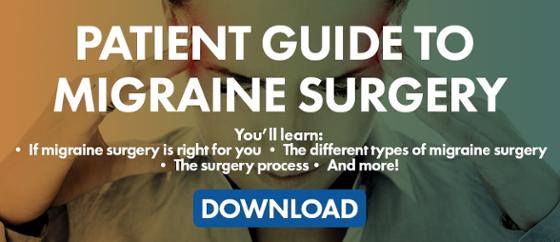Vertigo and Vestibular Migraines
If you are a migraine patient who loves great cinema, you owe it to yourself to check out Vertigo. Alas, if your migraines are triggered by certain visuals or emotions, then you might have to approach this film with caution. The movie Vertigo can be categorized as a psychological thriller that masterfully incorporates the eponymous neurological condition as a major plot device and it seems as if Hitchcock was so effective at making viewers identify with what the main character was going through that he created a headache-inducing film by applying certain camera, color and editing effects.Although Hitchcock's Vertigo is not specifically about migraines, it is known to trigger them right from the opening credits and score by Saul Bass, who used jagged angles and squiggly geometric effects to illustrate the symptoms of feeling lightheaded and dizzy like the main character Scottie Ferguson, played by Jimmy Stewart. This film, however, is not specifically about migraines; it is actually about psychogenic vertigo, which is brought on by anxiety. Interestingly, anxiety is a known trigger of migraines.
It is estimated that 40 percent of migraine patients experience vestibular dysfunction, commonly known as vertigo. This is a neurological condition that presents the following symptoms:
- Motion sickness and sensitivity
- Fear of heights
- Nausea
- Vomiting
- Loss of balance
If you suffer from migraines and the symptoms above seem familiar, you may have a certain vestibular aspect to your condition. In most cases involving migraine-associated vertigo, patients are likely to also experience auras and environmental triggers. This means that medical treatment is more critical for these patients since their conditions are more likely to affect their quality of life and could also have long-term repercussions if they are not managed adequately.
Treatment of Migraine Associated Vertigo
Without giving away the intricate and exciting plot of Hitchcock's Vertigo, let's just say that the main character's condition affects him during a crucial point in his life. Since he suffers from psychogenic vertigo, he could benefit from coping techniques and behavior modification for the purpose of overcoming his condition.Migraine patients may experience vertigo before or during a headache episode. If they also suffer from anxiety, psychotherapy could reduce their auras and headaches; however, prescription medications can be used to treat vertigo that occurs physiologically.
Vestibular migraines can be treated with the following types of pharmaceuticals:
- Topiramate
- Clonazepam
- Beta blockers
- Selective-Serotonin Reuptake Inhibitors
The treatment plan for vestibular migraines can be preventive or reactive. When stress or environmental factors are known to trigger migraine episodes, lifestyle management can go a long way in preventing headache attacks from happening. A healthy and stress-free lifestyle will not eliminate auras from occurring, but in many cases they can be prevented from progressing into a full-blown headache episode.
By the way, if you are wondering if Hitchcock suffered from acrophobia or migraines, his biographers do not indicate so. He struggled with weight problems throughout his entire life and passed away after a bout of renal failure. He had phobias of his own, namely loneliness and death, and he may have developed a neurosis after years of drinking liquor habitually, but he never reported migraine-like symptoms. Had Hitchcock suffered from nightmares, we can only wonder how Vertigo may have looked like instead.

